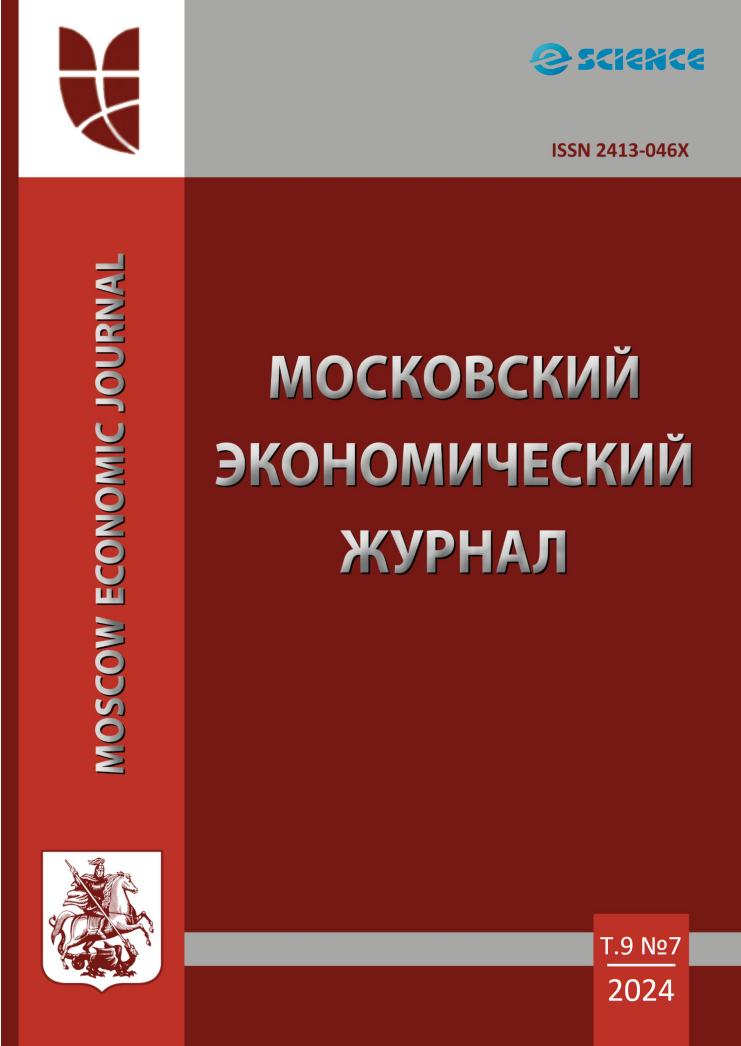UDC 37
This article examines the possibilities and prospects of using virtual reality (VR), augmented reality (AR), mixed reality (MR) and augmented reality (XR) technologies in the process of training future teachers of vocational training in economics. Modern educational technologies are developing rapidly, and the introduction of VR, AR, MR and XR is becoming increasingly relevant in teaching practice. These technologies offer new approaches to learning, allowing you to create interactive and immersive educational environments that promote a deeper understanding of complex economic concepts and improve practical skills. The article analyzes examples of the use of these technologies in various educational institutions, discusses their advantages and potential disadvantages. Special attention is paid to the integration of VR, AR, MR and XR into economics curricula, methods for evaluating their effectiveness and impact on students' motivation and academic performance. The results of research confirming that the use of these technologies contributes to improving the quality of education, increasing student interest and developing their professional competencies are presented. In conclusion, conclusions are drawn about the need for further research and development of methods for introducing VR, AR, MR and XR technologies into the educational process of teacher training, as well as the importance of teacher training for the effective use of these innovative tools.
virtual reality (VR), Augmented Reality (AR), mixed reality (MR), augmented reality (XR), education, vocational training teachers, economic education, innovative technologies
1. Kruglikov V.N. Interaktivnoe obuchenie v vysshey shkole: problemy i perspektivy// Nauchno-tehnicheskie vedomosti SPbGPU. Gumanitarnye i obschestvennye nauki. 2013. № 4(184). S. 66-72.
2. Sarsimbaeva, S. M. Tehnologii virtual'noy i dopolnennoy real'nosti v obrazovanii / S. M. Sarsimbaeva, Yu. V. Kornilov, M. U. Mukasheva. - Nur-Sultan: Nacional'naya akademiya obrazovaniya im. I. Altynsarina, 2022. - 341 s.
3. Jinwei L., Ishihara M. A Pilot Experiment on Attention Prompt Method for Car Driving Based on VR Technology. Communications in Computer and Information Science, 2022. 1583 CCIS, pp. 215-222.
4. Ito T., Mouri K., Okamoto M., Matsubara Y. Development and evaluation of car training system using VR and eye tracking technology. Proceedings - 2022 12th International Congress on Advanced Applied Informatics, IIAI-AAI 2022, pp. 170-173.
5. Peckmann, S., Kannen, K., Pensel, M.C., Lux, S., Philipsen, A., Braun, N.. Virtual reality induces symptoms of depersonalization and derealization: A longitudinal randomised control trial, Computers in Human Behavior. 2022. Vol. 131, 107233.
6. Davis, S., Nesbitt, K., Nalivaiko, E. Comparing the onset of cybersickness using the Oculus Rift and two virtual roller coasters. Proceedings of the 11th Australasian Conference on Interactive Entertainment (IE 2015). Vol. 167, pp. 3-14.
7. Chang, E., Kim, H.T., Yoo, B. Virtual Reality Sickness: A Review of Causes and Measurements, International Journal of Human-Computer Interaction. 2020. Vol. 36(17), pp. 1658-1682.
8. Duzmanska, N., Strojny, P., Strojny, A. Can Simulator Sickness Be Avoided? A Review on Temporal Aspects of Simulator Sickness. Front. Psychol. 2018. Vol. 9, 2132.
9. Drummond, A., Sauer, J.D., Ferguson, C.J., Cannon, P.R., Hall, L.C. Violent and non-violent virtual reality video games: Influences on affect, aggressive cognition, and aggressive behavior. Two pre-registered experiments, Journal of Experimental Social Psychology. 2021. Vol. 95, 104119.
10. Bailenson, J. Experience on demand: What virtual reality is, how it works, and what it can do. W.W. Norton & Company, 2018. 304 p.











